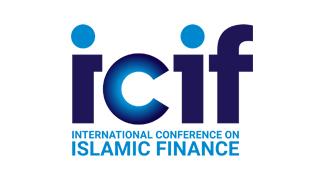Implications for Islamic Finance and Economy in Post Pandemic Era
Overview:
Following the three successful editions of the International Conferenceon Islamic Finance (ICIF), the Center for Islamic Economics and Finance (CIEF) at the College of Islamic Studies (CIS), at Hamad Bin Khalifa University (HBKU), with the support of the Qatar Financial Centre (QFC) Authority, is organizing the fourth ICIF, scheduled to be held on April 4 - 6, 2021 in Doha, Qatar.
The forthcoming ICIF 2021 aims to probe the barriers and opportunities for sustainable economic development under the “new normal”, characterized by the digital economy and Fourth Industrial Revolution, in the context of Islamic finance and economy.
Chair’s Welcome Message:
Welcome to the International Conference of Islamic Finance 2021!
Dear Colleagues and Guests,
On behalf of the organizing committee and the College of Islamic Studies (CIS), Hamad Bin Khalifa University (HBKU), the organizing institution, it is my great pleasure to welcome you to the International Conference on Islamic Finance 2021.
This year’s virtual conference will gather the local and international community in the field to discuss the emerging sustainable economic development under the “new normal”, characterized by the digital economy and Fourth Industrial Revolution, in the context of Islamic finance and economy. We hope this conference will inspire participants to initiate collaborations within and across various disciplines for the advancement of the topic, and further contribute to the development of Qatar as a knowledge-based economy.
We thank the staff, keynote speakers, contributing authors, and our sponsor, Qatar Financial Centre Authority (QFC), for helping us to make this conference possible. The organizing committee will do its best to make sure that your participation will be a rewarding and pleasurable experience.
Dr. Syed Nazim Ali
On behalf of ICIF 2021 Committee
Director of Research Division | Center of Islamic Economics and Finance
CIS, HBKU
Sponsors |
Organizer |
||
 |
 |
About
The call for sustainability, which is driven by the Paris Agreement and the advancement of the Fourth Industrial Revolution represents a structural change in our social and economic activities and interactions. It represents a new chapter of human development, which is led by the United Nations (UN) Sustainable Development Goals (SDGs) for peace and prosperity and enabled by the extraordinary technological advances commensurate with those of the first, second, and third industrial revolutions.
This human development in the fourth industrial era is merging the physical, digital, and biological worlds in ways that create both vast promises and potential perils. The breadth, depth, and speed of these advances are driving us to rethink how organizations conceive and create value, how countries should develop, and what it means to be human.
The recent unprecedented economic downturn and global supply chain disruption by the COVID-19 pandemic is accelerating the urgency for sustainable financing infrastructure that is agile, adaptable, and transformable. Sustainability and the Fourth Industrial Revolution are about more than just technology-driven change; it is an opportunity to help everyone, including leaders, policy makers, and people from all income groups and nations, to navigate industry disruptions and transitioning to a new normal by harnessing converging technologies in order to create an inclusive, human-centered future. Likewise, the real opportunity is to look beyond technology and find ways to provide the greatest number of people the ability to positively impact their families, organizations, and communities.
While technology brings opportunities to improve human life, one must be wary of its unwanted consequences. This includes unbalanced and unequal growth, the societal gap between the rich and the poor, change of social behavior, pollution, food security and the unethical use of technology.
With this background, what challenges and opportunities do these developments pose on Islamic Finance and Economy (IFE)?
The International Conference on Islamic Finance (ICIF) 20210 aims to probe the barriers and opportunities of sustainable economic development in the new normal of the digital economy and the Fourth Industrial Revolution for Islamic finance and economy. The three-day conference will provide a platform for dialogue and discussions between academics, researchers, students, industrial leaders, practitioners, and policy makers to address the issue and opportunity of sustainability and the Fourth Industrial Revolution in the light of the Islamic finance and economics discipline.
About Hamad Bin Khalifa University
Hamad Bin Khalifa University (HBKU), a member of Qatar Foundation for Education, Science, and Community Development (QF), was founded in 2010 to continue fulfilling QF’s vision of unlocking human potential. HBKU is a homegrown research and graduate studies university that acts as a catalyst for positive transformation in Qatar and the region while having a global impact.
Located within Education City, HBKU seeks to provide unparalleled opportunities where inquiry and discovery are integral to teaching and learning at all levels utilizing a multidisciplinary approach across all focus areas.
HBKU is committed to actively contribute to achieving the Qatar National Vision 2030 by building and cultivating human capacity through an enriching academic experience and an innovative research ecosystem. Through applying creativity to knowledge, students will have the opportunity to discover innovative solutions that are locally relevant and have a global impact.
At HBKU– our students, faculty, staff, partners, and leadership – all share a common belief in the power of higher education and research to make a positive impact in the development of nations.
More information at www.hbku.edu.qa
About Education City
Our flagship initiative is a campus of more than 12 square kilometers that hosts branch campuses of some of the world's leading educational institutes, a homegrown university, and other research, scholastic, and community centers. Together, these institutes make Education City a unique model of academic and research excellence, pioneering a new approach to multidisciplinary, global education and enabling breakthroughs that benefit Qatar and the rest of the world.
Total Students Across Our Universities and Schools: 8,000+
Universities Located in Education City: 9
Schools As Part of Our Pre-University Education Network: 11
More information at https://www.qf.org.qa/education/education-city
About Qatar
Qatar has been an independent sovereign state since 1971. Qatar comprises an 11,500 sq. km peninsula extending northwards into the Arabian Gulf. It has 563 km of uninterrupted coastline.
The country’s population stands at 2.69 million and its capital city is Doha.
Local time is GMT/UCT + 3 hours. There are no daylight savings adjustments.
Qatar has a desert climate with year-round sunshine, very hot summers and mild winters. Mean monthly temperatures range from 17°C in January to 36°C in July, sometimes reaching highs of 40°C+ during the summer. Rain is infrequent, falling in brief showers mainly in winter.
Capital: Doha
Population: 2.6 million
Area: 11,500 sq. km
Language: Arabic
Religion: Islam
Currency: Riyal
Power Connection: The power plugs and sockets are of type D and G. The standard voltage is 240 V and the standard frequency is 50 Hz.
More information at https://www.visitqatar.qa






